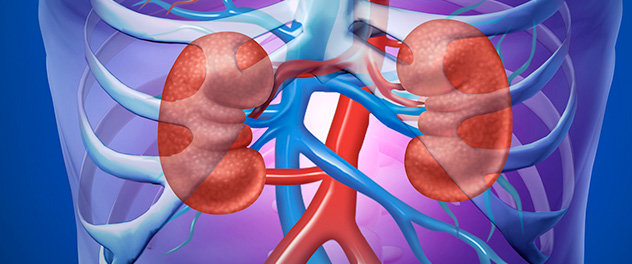 Finding solutions for end-stage renal disease
Finding solutions for end-stage renal disease
The Misra lab explores mechanisms of hemodialysis vascular access failure and develops novel therapies to improve vascular access patency for end-stage renal disease.
Overview
The Vascular and Interventional Radiology Translational Research Laboratory seeks a better scientific understanding of the mechanisms responsible for hemodialysis vascular failure and develops novel therapies to improve patency of the hemodialysis vascular access.
The lab's principal investigator is Sanjay Misra, M.D., a physician-scientist who has dedicated his research career to helping people affected by kidney disease. Dr. Misra is a professor of radiology at Mayo Clinic College of Medicine and Science in Rochester, Minnesota. His research has been funded by the U.S. National Institutes of Health (NIH) since 2010.
Research in the Misra lab is aimed at advancing solutions for the approximately 800,000 people with end-stage renal disease (ESKD) who require regular hemodialysis. With this population estimated to double in the coming decade, it's urgent to address these unmet medical needs.
Vascular access through an arteriovenous fistula (AVF) is required for optimal hemodialysis and clearance of uremic toxins. AVF failure occurs frequently because of venous stenosis formation. The patency of AVFs at one year is estimated to be only 62%. In addition, related healthcare expenses are high, estimated at $3 billion annually to maintain the function of hemodialysis AVFs and grafts.
Our lab studies the cellular signaling mechanisms responsible for reducing venous neointimal hyperplasia in arteriovenous fistulas. We also study treatment of renal ischemic injury using small molecule inhibitors, nanotherapies, antiangiogenic therapies and cell-based approaches.
Backed by more than 20 years of research on mechanisms of venous stenosis formation, we discovered that using adipose-derived mesenchymal stem cells (MSCs) experimentally reduces venous neointimal hyperplasia associated with hemodialysis arteriovenous fistulas. Our lab recently completed a phase 1 clinical trial using MSC therapy. In addition, we're involved in several other MSC trials, including studies of inflammatory bowel disease, kidney transplant rejection and arteriovenous fistula failure using allogeneic MSCs.
Learn more about Dr. Misra's study on reducing hemodialysis arteriovenous fistula failure.